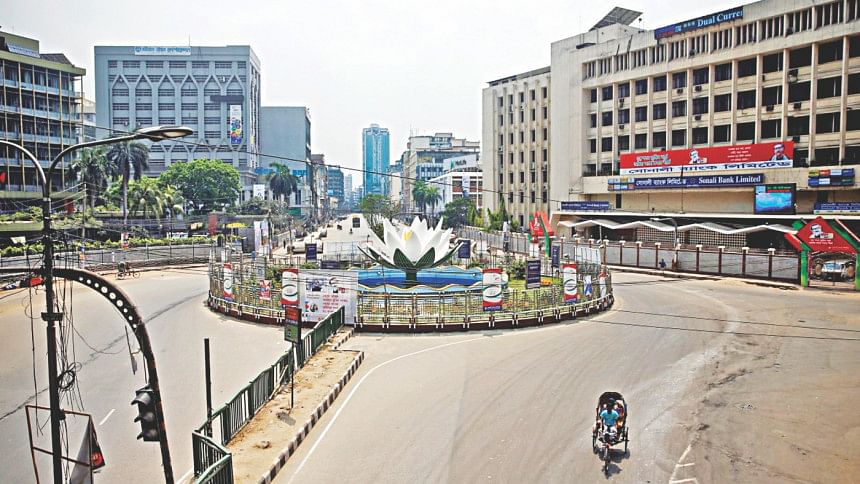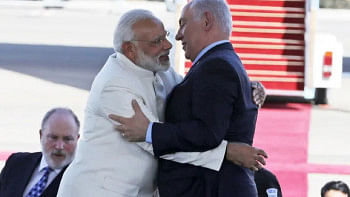Coronavirus pandemic: Are we (mis)managing it?

I'm panicked, as is everyone around the world now. We're faced with an existential threat. A death sentence hovers over us as it has hovered over Wuhan, China, since December 2019. The potential killer is a virus, COVID-19. The virus causes respiratory illness (like the flu) with symptoms such as cough, fever tightness in the lungs, and in the most severe cases, pneumonia. As of March 26, 2020, at least 18,589 people globally have died from COVID-19, while more than 4,14,686 people have been infected in at least 197 countries and territories, according to the World Health Organization (WHO). And the virus is still spreading apace, infecting and killing more people worldwide.
Its spread must be contained by avoiding contact with an infected person. The WHO in the meantime has declared this crisis as a pandemic. People around the globe were feeling increasingly anxious and vulnerable, and so their governments have tried to react to ensure their safety.
Now this pandemic has created serious paranoia. Xenophobia, isolationism, and distrust have erupted. Governments around the world are declaring curfews and emergencies, locking down cities and territories, sealing off borders, closing schools, cancelling flights, and restricting the movements of their citizens. No one seems to mind living a primitive life in a postmodern world. Safety matters. The culprit that causes the disease is contagious. It calls for "social distancing." As the virus crosses borders, it seems to have been getting more deadly—in China, the death rate is 3.98 percent, whereas in Italy, it is 8 percent. In Bangladesh as of March 26, five out of the 44 people reported to have been infected have died. The death rate is high here—11.36 percent. People need to be informed and cautioned. And where needed, they must be isolated and quarantined. That's what the experts suggest.
If, however, history can help deal with this pandemic, we perhaps would act differently to curb the spread of the virus. Our species has suffered from pandemics throughout the various phases of history. Stopping people's movements has never seemed to stop a pandemic, as Yuval Noah Harari implied in an op-ed in the Time online magazine on March 15, 2020. In the 14th century, he claims, there were no airplanes and cruise ships, and yet the Black Death spread from east Asia to western Europe in little more than a decade. It killed between 75 million and 200 million people—more than a quarter of the population of Eurasia. In England, four out of 10 people died. The city of Florence lost 50,000 of its 100,000 inhabitants. In March 1520, a single smallpox carrier—Francisco de Eguía—landed in Mexico. By December, a smallpox epidemic devastated the whole of Central America, killing according to some estimates up to a third of its population, when Central America had no trains, buses or even donkeys. In 1918 a particularly virulent strain of flu managed to spread within a few months to the remotest corners of the world to kill tens of millions of people—and perhaps as high as 100 million—in less than a year. These examples show that viruses will find ways to reach east and west, rich and poor, ghettos and chateaus. We must ensure our safety, but when safety measures are driven by fear, they are hardly effective.
In no way do I mean to downplay the seriousness of our pandemic. The threat is real, and the worst is looming. As a language teacher, however, I sometimes wonder whether we could shift to more sober tones to inform and warn about the pandemic. The wide circulation of such terms as emergency, isolation, quarantine, and curfew are, I'm afraid, coarsening our civil discourse. All these terms press on the panic button, because these are usually the language of hospitals, police stations, and the military. They smack of disease, crime, and dictatorship. If these terms continue to resonate during and following the pandemic, they might stoke xenophobic and racial rant. We already had some unpleasant examples around. Insensitive and inappropriate language indicates irrational thinking. When the chips are down, irrational thinking reflected in language is an expensive option. It leads to behaviour that might compound the crisis further.
For example, the Dhaka that I grew up in is not the Dhaka it has become since the first case of COVID-19 was reported on March 8. I love Dhaka with an absolute passion despite its choking traffic, toxic pollution, and deafening cacophony. It has morphed into a city that has lost its essential vices. It looks abandoned and spooky. Lest they infect or might become infected with the virus, the easy and outgoing people of the city stay home. When some of them come out, they go straight into the grocery stores. They buy stuff like maniacs.
People are hoarding food. The prices of essentials have spiked in the city. And what happens in Dhaka doesn't remain in Dhaka. It spills all over the country. So, the rest of the country is catching up and caving in to the panic and propaganda. Politicians, bureaucrats, and health officials have started to blurt out "lockdown". In fact, "lockdown" has already become a buzzword in dealing with COVID-19 around the world.
Under such a circumstance, information management is critical. Panicking is not the solution. Proper information is. But because of the ubiquity of social media, misinformation and propaganda are endemic. Myths and superstitions override facts and science. Fear mongering creeps in. With the COVID-19, the prophets of doom are treated as if they are the most authentic scientists and saviours here in Bangladesh and elsewhere. People are being brainwashed to believe that the virus is race-, religion-, and colour- (of skin) specific. That's rubbish!
While "isolation" and "lockdown" seem to ensure safety, they also push some people to the edge of vulnerability—a rickshaw puller, for example, lives from hand-to-mouth. Social mobility—his and others'—makes possible his skimpy income. If he stays home, he might have to starve along with his family. So, perhaps, might a day-labourer or a cab driver or a street vendor. "Lockdown" seriously strains any economy and affects everyone. But the marginal income groups are the first and worst victims. In a developing country like ours, we can't afford to follow Canada's precedent of announcing a USD 82 billion plan to stand by its citizens under any circumstance throughout this pandemic. Neither can we afford to do nothing. If the tough times stay with us for longer than we are hoping, we must have some contingency plans, so the worst victims can weather this crisis. If, under any circumstance, people have to go hungry for some time, they may go crazy. And they might threaten and undermine any management initiatives.
This pandemic has reached our shore a little later than it did those of other nations in the world. It's too early to predict whether we're managing it well or not. This much is sure, though, our management efforts need rethinking, revamping, and much more serious attention to the implications of the language we use to talk about it.
Mohammad Shamsuzzaman is an assistant professor, Department of English and Modern Languages, North South University, Bangladesh.

 For all latest news, follow The Daily Star's Google News channel.
For all latest news, follow The Daily Star's Google News channel. 



Comments